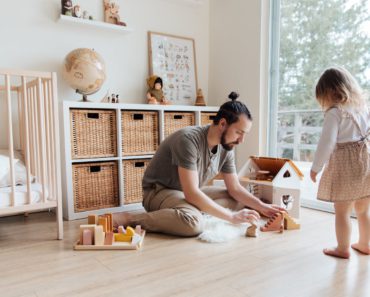Contents

Do you ever wonder how to help your partner with anxiety? It can be especially challenging if you don’t fully understand what they’re experiencing. If you find them frequently on edge or worrying about future uncertainties, it might be a sign of anxiety. This condition can be a heavy weight on both the person experiencing it and their loved ones. You might feel helpless, unsure how to best support them. But here’s the good news: there are many ways to be a source of strength and understanding. This guide will equip you with effective strategies to help your partner manage their anxiety, fostering a more supportive and loving relationship.
Supporting Your Partner’s Mental Health: A Guide to Helping Them Manage Anxiety

First, let’s gain a basic understanding of anxiety. It’s a normal human emotion, a built-in warning system that helps us navigate potential threats. However, for some people, this system becomes overactive, leading to excessive worry and physical symptoms like racing heart, shortness of breath, and muscle tension. Knowing this, it’s crucial to understand your partner’s specific anxiety triggers and how they manifest.
Now, how to help your partner with anxiety? Here are some tips to support your partner:
- Open Communication is Key: Create a safe space for your partner to express their anxieties freely, without judgment. Listen actively and validate their feelings.
- Offer Reassurance and Validation: Remind your partner that their anxiety is valid, and they are not alone. Your understanding and compassion can make a world of difference.
- Developing Coping Mechanisms: Encourage your partner to explore coping mechanisms like exercise, deep breathing exercises, or mindfulness techniques. Help them find what works best for them.
- Seeking Professional Help: If your partner’s anxiety significantly impacts their daily life, consider seeking professional help from a therapist or counselor. Offer to accompany them to appointments if they feel comfortable.
- Patience and Understanding: Managing anxiety can be a long and sometimes frustrating process. Be patient and offer support and understanding during both good and bad days. Remember, progress takes time.
- Prioritize Your Own Well-Being: Supporting someone with anxiety can be emotionally demanding. Don’t forget to set boundaries and prioritize your own mental health. Taking care of yourself allows you to be a stronger partner.
Remember: By working together, you can create a safe and supportive environment for your partner to manage their anxiety.
How to Help Your Partner Implement Self-Care Techniques

1. Encourage Healthy Habits: Help your partner establish a routine that includes regular exercise, balanced meals, adequate sleep, and relaxation techniques like deep breathing or meditation. Gentle encouragement and participation in these activities can promote overall well-being and reduce anxiety symptoms.
2. Support Therapy and Treatment: Encourage your partner to seek professional help, such as therapy or counseling, to manage their anxiety effectively. Offer assistance in finding appropriate resources, attending sessions together if they feel comfortable, or helping them adhere to treatment plans prescribed by healthcare professionals.
3. Practice Mindfulness Together: Engage in mindfulness practices as a couple, such as practicing gratitude, meditation, or guided imagery exercises. These activities can help both you and your partner cultivate a sense of calm, enhance self-awareness, and reduce anxiety levels. Being present together can also strengthen your bond.
How to Help Your Partner with Anxiety?: Create a Safe and Supportive Environment

1. Reduce Triggers: Identify triggers that exacerbate your partner’s anxiety and work together to minimize or avoid them when possible. This may include setting boundaries with certain situations, people, or environments that may trigger anxiety symptoms.
2. Encourage Healthy Coping Mechanisms: Help your partner develop healthy coping mechanisms for managing anxiety, such as journaling, practicing relaxation exercises, engaging in hobbies, or seeking support from support groups or online communities. Offer your support and participate in these activities together.
3. Celebrate Progress: Recognize and celebrate your partner’s progress in managing their anxiety. Acknowledge their efforts, no matter how small, as it can boost their confidence and motivation to continue their journey towards better mental health. Encouragement and positive reinforcement play a significant role in their healing process.
How can I support my partner who is experiencing anxiety?
Supporting a partner who is experiencing anxiety can be challenging. Do you feel helpless watching your partner struggle with anxiety? It’s a difficult situation, but don’t worry! Below are some ways you can be a good partner and help them navigate those anxious thoughts:
- Be Their Safe Space: Imagine your partner’s worries are like a storm cloud. You can’t make the storm disappear, but you can be a sturdy umbrella. Listen to their anxieties without judgment, let them vent, and remind them you believe in them.
- Become an Anxiety Detective: Ever heard of “Googling your symptoms” at 3 am? Do some research about anxiety together. Understanding what’s happening can help you both feel more empowered.
- Therapy Isn’t Scary (Promise!): Encourage your partner to see a therapist. Offer to help them find the right fit, and even go to appointments with them if that helps.
- Find Their Chill Zone: Everyone handles stress differently. Maybe your partner needs a yoga flow or a deep breathing session. Help them discover healthy coping mechanisms that work for them.
- Patience is Your Superpower: Anxiety can be frustrating. There will be good days and bad days. Be patient, understanding, and offer support even when things feel overwhelming.
- Remind Them They’re a Warrior: Anxiety can make you feel weak, but your partner is braver than they think! Remind them of past victories over anxiety and all the amazing things they’ve accomplished.
- Don’t Be a Crutch (Let Them Fly!): You want to support your partner, but sometimes enabling behaviors can make things worse. Encourage them to face their fears gradually, and gently challenge their anxious thoughts together.
- Don’t Forget About You!: Taking care of yourself is crucial. Schedule time for things you enjoy, reach out to friends for support, or join an anxiety support group for partners. A happy and healthy person is better equipped to be a happy and supportive partner.
Remember, open communication is key! Talk openly about what works and what doesn’t. Every person’s anxiety journey is unique, so be flexible and supportive. If their anxiety is severely impacting their daily life, encourage them to seek professional help right away.
How can I create a safe and understanding environment for my partner with anxiety?
To create a safe and understanding environment for your partner with anxiety, it’s important to be supportive and empathetic. Here are some tips:
- Active listening: Be an active listener when your partner talks about their anxiety. Give them your full attention, show empathy, and validate their feelings.
- Respect their boundaries: Understand that everyone copes with anxiety differently. Respect your partner’s limits and avoid pushing them too far out of their comfort zone.
- Create a calm environment: Help reduce stress triggers at home by maintaining a peaceful and organized space. Encourage relaxation techniques such as deep breathing exercises or meditation.
- Offer support: Let your partner know that you are there for them. Offer assistance when needed, but also encourage them to seek professional help if necessary.
Remember, creating a safe environment takes time and effort. Be patient and understanding, and continue to educate yourself about anxiety to provide the best support possible.
Navigating the path of anxiety alongside your partner is an opportunity to deepen your connection and build a relationship that weathers any storm. By being a pillar of support, a listening ear, and a source of encouragement, you can help your partner blossom into a more confident and resilient version of themselves. Remember, this journey is not about fixing them; it’s about walking alongside them, hand in hand, as they discover their inner strength and resilience. Together, you can create a love story that transcends anxiety, a testament to the power of empathy, compassion, and unwavering support.







